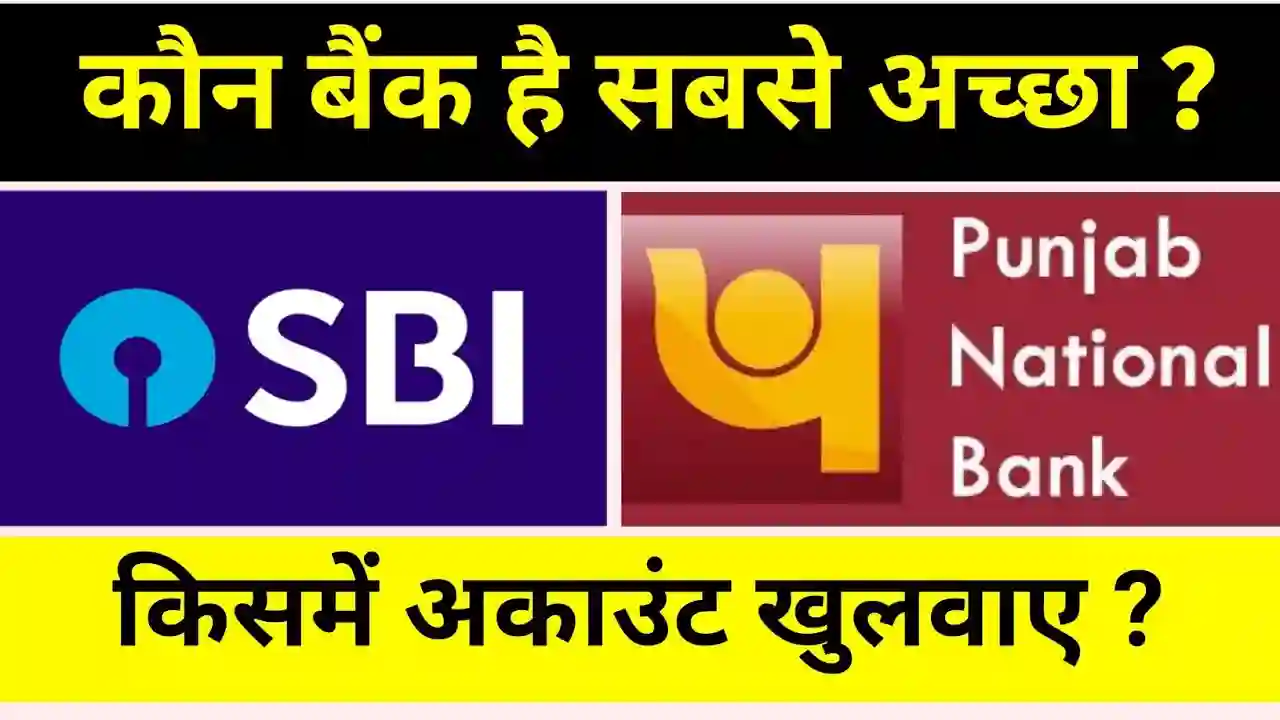State Bank of India (SBI) and Punjab National Bank (PNB) are two of the largest and most trusted public sector banks in India. Both banks have a long-standing history and offer a wide range of financial products and services. However, choosing between the two depends on factors such as customer service, interest rates, digital banking, loan offerings, and overall customer satisfaction. In this article, we will compare SBI and PNB across various services to help you decide which bank is better suited to your needs.
1. Customer Service
Customer service is a critical factor when choosing a bank. Both SBI and PNB have extensive networks and offer support to their customers, but there are differences in their service quality.
- SBI: As the largest bank in India, SBI has a vast customer base and a strong reputation for customer service. The bank offers 24/7 customer support through phone, email, and chat. However, due to its size, some customers have reported delays in grievance resolution, especially in rural areas.
- PNB: PNB also provides reliable customer service, but it is often considered more personalized compared to SBI. The bank has been working on improving its customer support systems, but it still lags behind SBI in terms of reach and efficiency.
Verdict: SBI has a slight edge in customer service due to its extensive network and resources, though PNB offers a more personalized experience.
2. Digital Banking
In today’s digital age, the quality of a bank’s online and mobile banking platforms is crucial.
- SBI: SBI’s digital banking platform, YONO (You Only Need One), is one of the most advanced in the industry. It offers a seamless experience for fund transfers, bill payments, investments, and loan management. The SBI mobile app is also user-friendly and feature-rich.
- PNB: PNB’s digital banking platform, PNB One, is robust and offers a wide range of services, including account management, fund transfers, and bill payments. However, some users have reported occasional glitches and a less intuitive interface compared to SBI’s YONO.
Verdict: SBI is ahead in digital banking due to its more advanced and user-friendly platform.
3. Loan and Credit Card Offerings
Both banks provide a variety of loan products and credit cards, but there are differences in interest rates, processing fees, and benefits.
- SBI: SBI is known for its competitive interest rates on home loans, personal loans, and car loans. The bank also offers a wide range of credit cards with attractive rewards, cashback, and discounts on shopping, dining, and travel. SBI’s home loan schemes are particularly popular.
- PNB: PNB also offers competitive loan products and has a strong portfolio of credit cards. Its interest rates on loans are often comparable to SBI’s, but the processing fees can be slightly higher. PNB’s credit cards are less popular compared to SBI’s.
Verdict: SBI is better for loans and credit cards due to lower interest rates and more attractive rewards.
4. Savings and Fixed Deposit Interest Rates
Interest rates on savings accounts and fixed deposits are important for customers looking to grow their savings.
- SBI: SBI offers moderate interest rates on savings accounts and fixed deposits. While the rates are not the highest in the market, they are competitive and reliable. SBI also offers special fixed deposit schemes for senior citizens.
- PNB: PNB often provides slightly higher interest rates on savings accounts and fixed deposits compared to SBI. This makes it a better option for customers who prioritize higher returns on their deposits.
Verdict: PNB is better for savings accounts and fixed deposits due to its higher interest rates.
5. Branch and ATM Network
A wide network of branches and ATMs ensures convenience for customers.
- SBI: SBI has the largest branch and ATM network in India, making it highly accessible for customers in both urban and rural areas. The bank’s extensive reach is one of its biggest strengths.
- PNB: PNB also has a significant presence across the country, but its network is smaller compared to SBI. However, PNB is expanding its reach and improving its services.
Verdict: SBI has a more extensive branch and ATM network, providing greater convenience.
6. Investment and Wealth Management
Both banks offer investment and wealth management services, but their offerings differ.
- SBI: SBI provides a comprehensive range of investment options, including mutual funds, stocks, and insurance products. The bank’s wealth management services are highly regarded for their personalized approach.
- PNB: PNB also offers robust investment and wealth management services. Its focus on digital investment platforms and personalized financial advice makes it a strong competitor.
Verdict: Both banks are equally good in this category, but SBI has a slight edge due to its long-standing reputation.
7. Fees and Charges
Banks often charge fees for various services, such as account maintenance, ATM withdrawals, and transactions.
- SBI: SBI’s fees are generally competitive, but some customers find them slightly higher compared to other banks. However, the bank offers many free services for account holders.
- PNB: PNB is known for its transparent fee structure and lower charges on certain services, making it a more cost-effective option for some customers.
Verdict: PNB is better for customers looking to minimize banking fees.
Conclusion: Which Bank is Better?
Both SBI and PNB are excellent choices, but the better option depends on your specific needs:
- Choose SBI if:
- You prioritize customer service and a reliable digital banking experience.
- You are looking for competitive loan interest rates.
- You want access to a vast branch and ATM network.
- Choose PNB if:
- You want higher interest rates on savings accounts and fixed deposits.
- You prefer lower fees and charges on banking services.
- You are looking for a more personalized banking experience.
Ultimately, both banks have their strengths, and your decision should be based on the services that matter most to you. It’s also a good idea to visit their websites or branches to explore their offerings in detail before making a choice.

